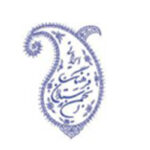The 12th day of Ridván
 Photo: Bahá’í International Community
Photo: Bahá’í International Community
Republished from an article first posted in April, 2015
Sunset on 1 May to marks the beginning of the 12th and final day of the Festival of Ridván. Shoghi Effendi writes1:
As to the significance of that Declaration let Bahá’u’lláh Himself reveal to us its import. Acclaiming that historic occasion as the “Most Great Festival,” the “King of Festivals,” the “Festival of God,” He has, in His Kitáb-i-Aqdas, characterized it as the Day whereon “all created things were immersed in the sea of purification,” whilst in one of His specific Tablets, He has referred to it as the Day whereon “the breezes of forgiveness were wafted over the entire creation ….” And yet again: “Arise, and proclaim unto the entire creation the tidings that He who is the All-Merciful hath directed His steps towards the Riḍván and entered it. Guide, then, the people unto the Garden of Delight which God hath made the Throne of His Paradise … Within this Paradise, and from the heights of its loftiest chambers, the Maids of Heaven have cried out and shouted: ‘Rejoice, ye dwellers of the realms above, for the fingers of Him Who is the Ancient of Days are ringing, in the name of the All-Glorious, the Most Great Bell, in the midmost heart of the heavens. The hands of bounty have borne round the cups of everlasting life. Approach, and quaff your fill.’” And finally: “Forget the world of creation, O Pen, and turn Thou towards the face of Thy Lord, the Lord of all names. Adorn, then, the world with the ornament of the favors of Thy Lord, the King of everlasting days. For We perceive the fragrance of the Day whereon He Who is the Desire of all nations hath shed upon the kingdoms of the unseen and of the seen the splendors of the light of His most excellent names, and enveloped them with the radiance of the luminaries of His most gracious favors, favors which none can reckon except Him Who is the Omnipotent Protector of the entire creation.”
The departure of Bahá’u’lláh from the Garden of Riḍván, at noon, on the 14th of Dhi’l-Qa‘dih 1279 A.H. (May 3, 1863), witnessed scenes of tumultuous enthusiasm no less spectacular, and even more touching, than those which greeted Him when leaving His Most Great House in Baghdád. “The great tumult,” wrote an eyewitness, “associated in our minds with the Day of Gathering, the Day of Judgment, we beheld on that occasion. Believers and unbelievers alike sobbed and lamented. The chiefs and notables who had congregated were struck with wonder. Emotions were stirred to such depths as no tongue can describe, nor could any observer escape their contagion.”
Mounted on His steed, a red roan stallion of the finest breed, the best His lovers could purchase for Him, and leaving behind Him a bowing multitude of fervent admirers, He rode forth on the first stage of a journey that was to carry Him to the city of Constantinople. “Numerous were the heads,” Nabíl himself a witness of that memorable scene, recounts, “which, on every side, bowed to the dust at the feet of His horse, and kissed its hoofs, and countless were those who pressed forward to embrace His stirrups.” “How great the number of those embodiments of fidelity,” testifies a fellow-traveler, “who, casting themselves before that charger, preferred death to separation from their Beloved! Methinks, that blessed steed trod upon the bodies of those pure-hearted souls.” “He (God) it was,” Bahá’u’lláh Himself declares, “Who enabled Me to depart out of the city (Baghdád), clothed with such majesty as none, except the denier and the malicious, can fail to acknowledge.” These marks of homage and devotion continued to surround Him until He was installed in Constantinople.
Adib Taherzadeh writes that2:
The spiritual energies released at the time of Bahá’u’lláh’s Declaration bestowed a fresh capacity upon the human race, enabling every individual regardless of race, colour, education or background to recognize the Message of God for this day, and to play his part in the establishment of a world-embracing divine civilization for mankind.
1 Shoghi Effendi, God Passes By, Chapter 9.
2 Adib Taherzadeh, The Revelation of Bahá’u’lláh, Vol. 1, pp. 278.
Category: Community life








